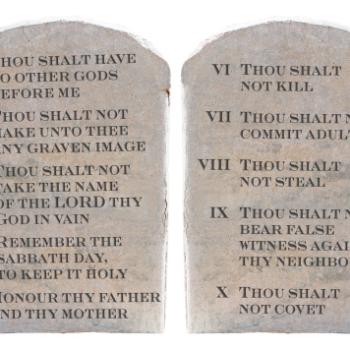I’m almost finished writing a small book about the Christian gospel. The noun “gospel” appears in the New Testament of English Bibles about 100 times. The New Testament documents have come down to us in the Koine Greek language. Prior to the invention of the printing press, scribes used to hand copy manuscripts written in the Koine Greek language. Scholars now have over 5,000 of these ancient manuscripts, or portions of manuscripts, from which they compile a Greek New Testament. Translators then use a Greek New Testament to make a translation, such as an English New Testament. In this Greek text, it is the noun euangelion that is translated “gospel.” Euangelion usually is translated in English Bibles as “gospel” or “good new” or “glad tidings.” So, what is this good news about the Christian gospel?
Jesus came preaching the gospel about the kingdom of God and how to enter it. He often did by telling interesting parables. After Jesus died, was resurrected from the dead, and ascended to heaven forty days later, the early disciples of Jesus went out preaching the gospel about the kingdom of God which included these two main elements: Jesus died on the cross for our sins, and God raised him from the dead.
The apostle Paul relates in one of his letters what many scholars regard as the clearest articulation of the Christian gospel in the New Testament. It is in 1 Corinthians 15.3-5. Paul introduces it by saying in v. 1, “Now I would remind you brothers and sisters of the good news that I proclaimed to you.” The Greek text has euangelion, here translated “good news.” Paul then says in vv. 3-5: “I handed on to you as of first importance what I in turn had received, that Christ died for our sins in accordance with the scriptures, and that he was buried, and that he was raised on the third day in accordance with the scriptures, and that he appeared to Cephas [the apostle Peter], then to the twelve” apostles.” So, Paul says that to be a Christian it is of utmost importance to believe Jesus died for our sins and was raised from the dead. That is the core of the gospel that is seen throughout the New Testament.
Jesus, his twelve apostles, and other earliest followers of Jesus were all Jews. They believed there was only one true and living God and that he created the universe. The Bible says this one God lives in “heaven” and is sometimes characterized as “The Most High.” This refers to his throne being the highest of any other thrones. Jesus uniquely identified this God in a personal, relational way as “the Father.” He often said to his disciples “your heavenly Father” or “your Father in heaven.” Jesus taught his so-called Lord’s Prayer which begins, “Our Father, who is in heaven.”
In the second and third centuries, church fathers were saying that Jesus was more than a man in that he was somehow also God. Christianity had emerged from Judaism, which was monotheistic. That is, the Jewish religion had distinguished itself by claiming there was only one true and living God. The nations surrounding Israel had believed in many gods, called polytheism. So, when the church came to consist mostly of Gentiles rather than Jews, Gentile church fathers departed from this strict monotheism handed down to them by Jews to believing that, besides God the Father, Jesus also was and is God. Called “apologists,” they thought Jesus was a lesser God than God the Father was. They speculated that Jesus had preexisted as “the Logos,” which we read about in the Gospel of John. But the New Testament doesn’t say much about that.
Three hundred years after Christianity began, the church of the Roman Empire had gotten into a controversy about Jesus’ identity as the Logos. The argument was whether Jesus had eternally existed as the Logos-Son, referring also to his identity as the Son of God, or if the Logos-Son had been created at some time prior to creation of the universe. Emperor Constantine called for an assembly of church bishops to settled this matter. It was held in the year 325 and called “the Nicene Council” because it was held in the city of Nicaea, in present Turkey. They drafted a creed, called the Nicene Creed. It says Jesus is “very God of very God.” This means he was just as much God as God the Father is God. Thus, the council of 318 bishops agreed that Jesus was both fully man and fully God. This council and its creed became the most important event of the church in its now nearly 2,000-year history. To this day, most Christians are still taught that Jesus is God mostly because of the Nicene Creed.
Yet, this is quite different from what the New Testament says. For example, its fifth book is entitled “The Acts of the Apostles.” It contains narratives about Jesus’ apostles and other disciples preaching the gospel, the good news about God’s kingdom and Jesus having died and risen from the dead. It was this belief in the resurrected Jesus that caused the growth of what scholars call the Jesus Movement, which consisted of mostly Jewish believers in Jesus. When this movement spread into Gentile lands to consist mostly of Gentiles, scholars call that Christianity.
The book of Acts contains twenty-three evangelistic messages that the early believers in Jesus proclaimed. None of these messages say what the Nicene Creed says, that Jesus is God, much less that he is “very God of very God,” which also means “fully God of fully God.” It is quite clear that these church fathers added to the original, primitive gospel of the early believers in Jesus. They added to it that Jesus is God.
So, my question is this: Did church fathers have divine authority to change the original gospel? Or did they merely develop what was already there in the New Testament gospel in embryonic form? That’s what my new book will be about. What do you think?













